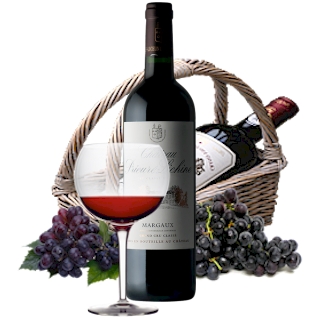


Like many of their fellow Germanic migrants they made their way by ox cart to Bethany, the Barossa Valley’s first settlement, where they established a home and cleared the land to grow crops and graze animals. The Schrapels planted their first vineyard in 1852 from cuttings carefully nursed from Europe. A wine cellar was also built, but despite Johann’s reputation as an early colonial winemaker, the family concentrated on grape growing rather than winemaking for the next four generations. More than a century later in 1981, Johann’s fifth generation descendants, brothers Geoff and Robert Schrapel, established Bethany Wines in a quarry, where the pioneers had hewn stone for their homes, high in the Barossa Ranges overlooking the family’s vineyards and the historic village of Bethany.

The early 1980s were tough times for Barossa grapegrowers. A red wine boom was followed by a glut and, as grape prices fell below production cost, the State Government encouraged growers to pull out their old Shiraz and Grenache vines. Instead, the Schrapels chose to establish a tradition of winemaking from this undervalued yet irreplaceable resource of old vineyards. Gradually their reputation grew.
Now a vibrant family wine company, Bethany Wines employs many people and plays a significant role in the Barossa community. Geoff and Robert’s vision was to create a Barossa wine experience and in doing so, improve the quality of life for their customers, friends and family. In this they have succeeded. Their aim is to live well, provide for their children, care for the land and hand the winery and vineyards to the next generation in a better position than when they started.
The family's historic vineyards are the key to production of theiquality wines. Thirty hectares of vineyard in Bethany are owned by the Schrapels, comprising the Bethanien Block, the Old Manse Block and the Homestead Block. A range of varieties are grown from Chardonnay, Riesling and Semillon to Shiraz, Cabernet Sauvignon, Cabernet Franc, Merlot and Grenache. The age of their vines ranges from 15 to 80 years. The old vines require traditional management of hand pruning and harvesting, while the newer plantings are managed with modern viticultural techniques such as close planting, high trellises and canopy control.
Geoff and Robert look for maximum expression of fruit flavour in their wines and pay particular attention to the careful handling of grapes at vintage. The use of chemicals is minimised in grape growing and wine is made in small lots to maximise variations in fruit flavour and ripeness which contribute complexity to the wines; wines which are the most natural expression of their unique Barossa terroir.
During the last two decades Bethany Wines has won acclaim at Australian and international wine shows and consumer tastings for its hand-made, fruit driven wines. The greatest natural advantage the Schrapels have is the fruit which comes from the family's carefully tended vineyards. Their thirty hectares of vineyard in Bethany, comprising the Bethanien Block, the Old Manse block and the Homestead Block are fanned during summer evenings with cooling gully breezes, creating a special microclimate which allows the grapes to achieve good sugar and acid levels without becoming over-ripe. It takes a long time to know a vineyard. At Bethany these vines can live for four or five generations. The special understanding of how to grow grapes on the unique Bethany clay soils has taken many years for the Schrapel descendants to master.
The idyllicly gradual ripening conditions create well balanced wines with flavour and structure. The life cycle of the vineyard continues in much the same way as it always has, with minimal intervention to produce the best possible grapes and wines. Bethany also leases a further seven hectares of vineyard in the Trial Hill area in the high country of the Barossa Valley which contributes added elegance and complexity to their wines.
